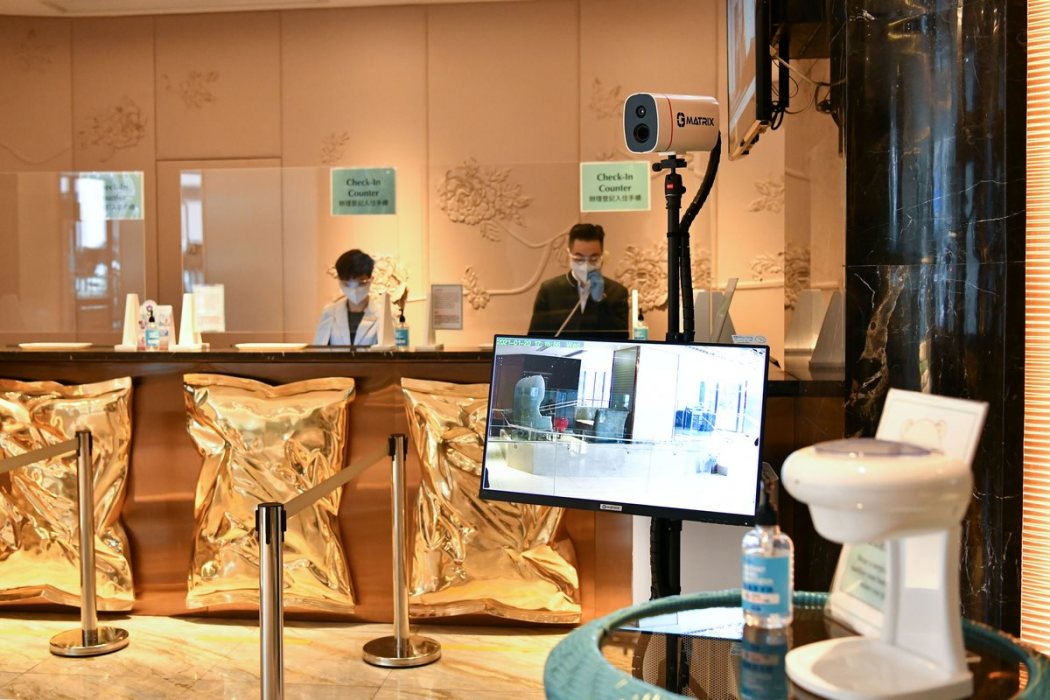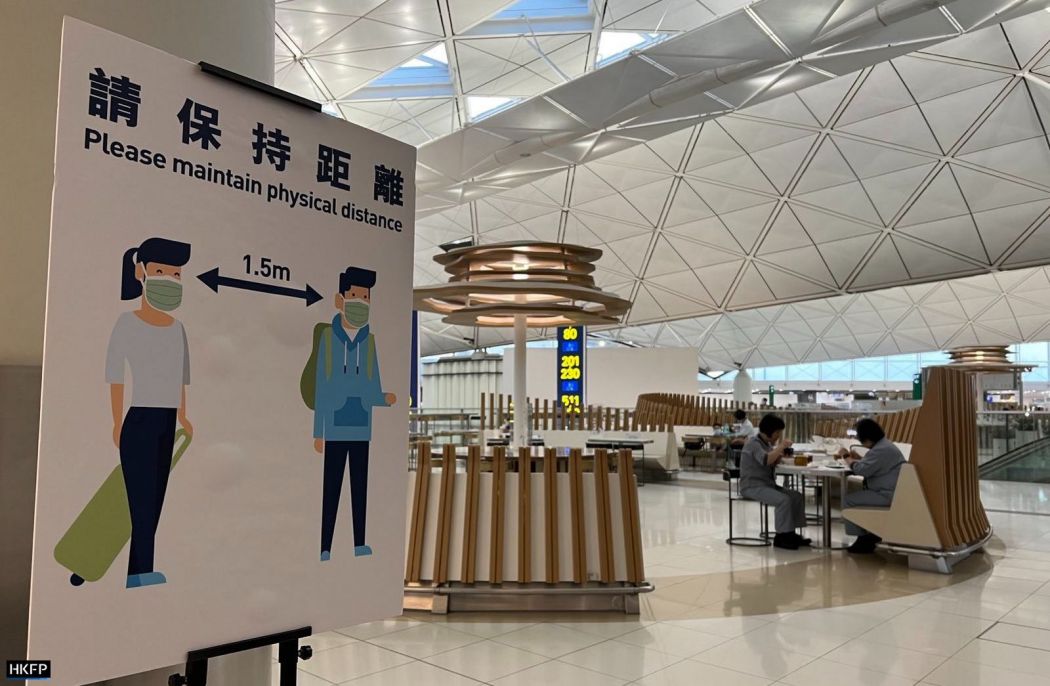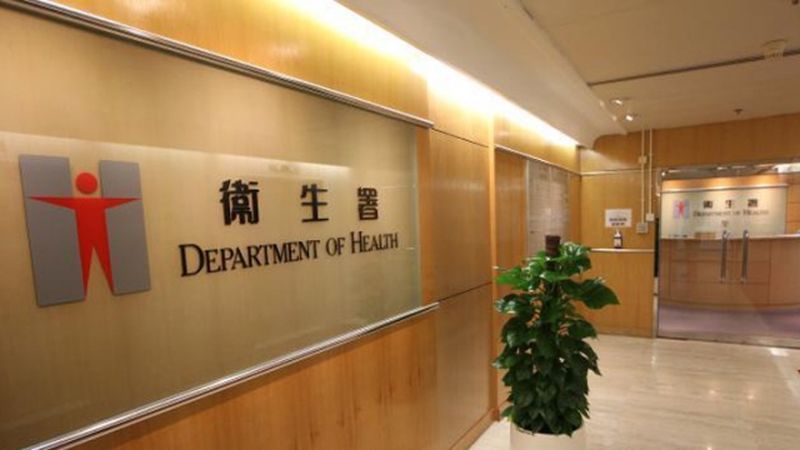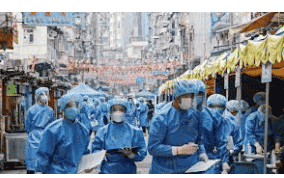“A Hong Kong resident returning to Hong Kong is not seeking ‘temporary or permanent residence’. They are returning home… the [International Health Regulations (2005)] states that returning citizens or permanent residents must not be required to pay for involuntary imprisonment on public health grounds,” writes barrister Philip Dykes
If you want to understand current HK Covid policies this is the only article you need to read this year
The Hong Kong Free Press
My interest in the government’s quarantine and isolation policies was, I confess, academic. That is until the soft knocking on mortality’s door became louder and got the better of me.
I had last seen my mother in the autumn of 2019. She lives in the charming cathedral city of Hereford in the United Kingdom. I promised her I would return in March of the following year to celebrate her 90th birthday.

The onset of Covid-19 put paid to that. For at least eighteen months from the spring of 2020, travel to the United Kingdom was an adventure in epidemiological uncertainty coupled with the certainty of weeks of compulsory quarantine on return to Hong Kong.
Things began to look up earlier this year. Like many other countries, the United Kingdom had reconciled itself to “living with Covid.” For its part, Hong Kong had resolved on just two weeks of compulsory quarantine, with the option of serving the second week from home provided that the returnee submits to stringent testing measures. It was time to think about giving my mother a birthday celebration that had been delayed for two years.
I began to plan a visit to my mother in May. In June, I booked my tickets for a day in September and secured a hotel room for my involuntary incarceration on public health grounds upon my return in October.

I had made my plans and was reconciled to detention for at least seven days. However, as a lawyer, I was curious to know the legal basis for the government requiring me to pay for a public health measure that, so it is claimed, benefits the community. After all, convicted criminals locked up for the public good do not have to bear the cost of imprisonment. Additionally, I noted that I had the right – not the privilege – of free movement in and out of the HKSAR under Article 31 of the Basic Law, which provides that Hong Kong residents shall have “freedom to travel and to enter or leave the Region.”
Now, as this government is overly fond of reminding us, constitutional rights are rarely absolute and can be limited.
Therefore, I asked myself what could be a permissible limitation in times of Covid on the right to travel under Article 31 of the Basic Law?
I am no medical expert, but it was common sense that public health considerations would require isolation in the case of confirmed cases and quarantine in the cases of those who, despite appearances, might have an infectious disease lurking in their body. But who should pay for the required quarantine?

In seeking an answer, I turned to the World Health Organization, a United Nations body responsible for directing and controlling the world’s response to medical emergencies. It has the authority to draw up rules and regulations on public health emergencies which bind countries that subscribe to its governance. Hong Kong follows the WHO’s lead in this field because the People’s Republic of China signed up to the WHO.
I discovered that the WHO in 2005 issued a set of rules and regulations on public health emergencies meant to be binding on all member countries. These regulations – the International Health Regulations (2005) – include provisions concerning people travelling abroad and returning to face quarantine or isolation.
Article 40(1) states that returning citizens or permanent residents must not be required to pay for involuntary imprisonment on public health grounds.
1. Except for travellers seeking temporary or permanent residence, and subject to paragraph 2 of this Article, no charge shall be made by a State Party pursuant to these Regulations for the following measures for the protection of public health:
(a) …
(b) …
(c) appropriate isolation or quarantine requirements of travellers;
(d) …
(e) …
(The proviso referring to paragraph 2 of the regulation concerns states charging for “health measures other than those referred to in paragraph 1, including those primarily for the benefit of the traveller.” In other words, there can be charges for medicine and medical care but not for the cost of isolation or quarantine accommodation.)

The regulations define a traveller as a natural person on an international voyage (Article 1). A Hong Kong resident coming back to Hong Kong is not seeking “temporary or permanent residence” but is returning home.
As the English poet Alexander Pope said, “A Little Learning is a Dangerous Thing.” Equipped with my newly-acquired knowledge of Article 40, I wrote to the Department of Health on June 2. I asked why the government’s policies on quarantine for returning residents seemed to be at variance with Article 40.
I felt confident that the Department of Health could answer the question because its website included a page which boasted that the HKSAR complied with the requirements of the International Health Regulations (2005). The relevant webpage says:
To bring the local legal provisions in line with the requirements of the IHR (2005) and to update the local legal framework for the prevention and control of disease, the Prevention and Control of Disease Ordinance (Cap. 599) has entered into force since July 2008 in Hong Kong.

The introduction to the law that is the source of quarantine and isolation measures – the Prevention and Control of Disease Ordinance, Cap. 599 – says that one of its purposes is “to apply relevant measures of the International Health Regulations promulgated by the World Health Organization; and to provide for connected purposes.”
In the space of four weeks, I received two replies from the Department. They amounted to saying that any issue of apparent non-compliance with the 2005 Regulations was a policy issue and I should direct my questions to the Health Bureau. I did not bother to reply by asking why the Department had procrastinated and did not just refer my question to the Health Bureau.

About two weeks ago, I wrote to the new Secretary in charge of the Health Bureau. I have not been afforded the courtesy of even a holding reply as of the time of writing.
Without a reply from the new Secretary in charge of the Health Bureau, I cannot say whether the government is in breach of its international obligations under Article 40. The government may have good reasons to say why it is justified in acting in a way that seems to contradict the letter and the spirit of an international legal obligation. I would simply like to know what these reasons are.
I can say that nothing has changed. The current advice of the WHO contained in its advice to states subscribing to the WHO is that it is important to comply with Article 40. Its “Statement on the twelfth meeting of the International Health Regulations (2005) Emergency Committee regarding the coronavirus disease (COVID-19) pandemic” dated July 12 says this:
Continue to adjust international travel-related measures based on risk assessments. The implementation of travel measures (such as vaccination, screening, including via testing, isolation/quarantine of travelers) should be proportionate (based on risk assessments) and should avoid placing the financial burden on international travelers, in accordance with Article 40 of the IHR.)

I sincerely hope my questions, now made public, will flush out an answer to my concerns.
These concerns were not all about strict compliance with Article 40. They included the question of why the government was not prepared to waive quarantine charges or reduce them if a traveller could satisfy it that payment in full was an impossible burden. I know that some other countries, such as the UK, Ireland and Australia, which did not follow Article 40 entirely were at least prepared to make downward adjustments to bills for quarantine according to the traveller’s means – or even waive quarantine charges altogether.
Editorial note: In response to HKFP, the Health Bureau said that hotel quarantine is required for arrivals, but the authorities do not charge travellers: “Such hotel accommodation is provided by third parties (i.e. the relevant hotel operator in the private sector), and travellers will pay to the operator direct. The Government does not make any charge for hotel accommodation.”




